 Search by Keyword
|
"I WILL"
(John Lennon – Paul McCartney)
Paul the balladeer, as a good percentage of Beatles fans thought of him, had seemed to all but fade into the background by the time of 1968's "White Album." Earlier on, he could always be counted on, expected in fact, to deliver an iconic love song for every Beatles album. Even when the group dramatically ventured away from the topic of romance by the time of 1966's "Revolver," Paul still interjected "Here, There And Everywhere" among acid-inspired rockers, tales of dying spinsters and images of submarines.
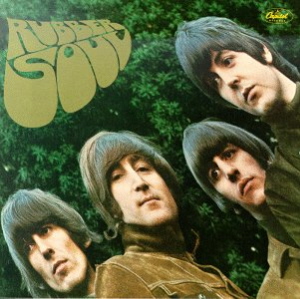 The topics of songs that graced the “White Album” were even more varied, bordering on the controversial at times. But still, our boy Paul thought to put in his prerequisite 'love song' to satisfy what he felt was expected of him. With a composition that perhaps would have fit in well on 1965's “Rubber Soul,” he proved that chivalry was indeed still alive and well with “I Will.” Even in the no-holds-barred attitude of 1968, there was always room for the formula love song, and it still worked well. The topics of songs that graced the “White Album” were even more varied, bordering on the controversial at times. But still, our boy Paul thought to put in his prerequisite 'love song' to satisfy what he felt was expected of him. With a composition that perhaps would have fit in well on 1965's “Rubber Soul,” he proved that chivalry was indeed still alive and well with “I Will.” Even in the no-holds-barred attitude of 1968, there was always room for the formula love song, and it still worked well.
Songwriting History
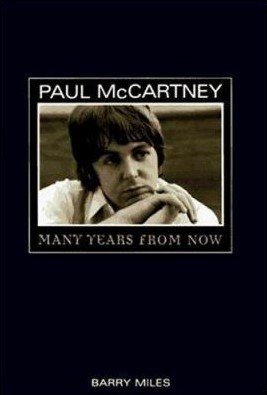 “I wrote quite a few songs in Rishikesh," explained Paul in his book "Many Years From Now," describing The Beatles' visit to India in the spring of 1968. "George actually once got quite annoyed and told me off because I was trying to think of the next album. He said, 'We're not f*cking here to do the next album, we're here to meditate!" It was like, 'Ohh, excuse me for breathing!,' you know. George was quite strict about that...and it's like, 'Oh come on, George, you don't have a monopoly on thought in this area. I'm allowed to have my own views on the matter.'" “I wrote quite a few songs in Rishikesh," explained Paul in his book "Many Years From Now," describing The Beatles' visit to India in the spring of 1968. "George actually once got quite annoyed and told me off because I was trying to think of the next album. He said, 'We're not f*cking here to do the next album, we're here to meditate!" It was like, 'Ohh, excuse me for breathing!,' you know. George was quite strict about that...and it's like, 'Oh come on, George, you don't have a monopoly on thought in this area. I'm allowed to have my own views on the matter.'"
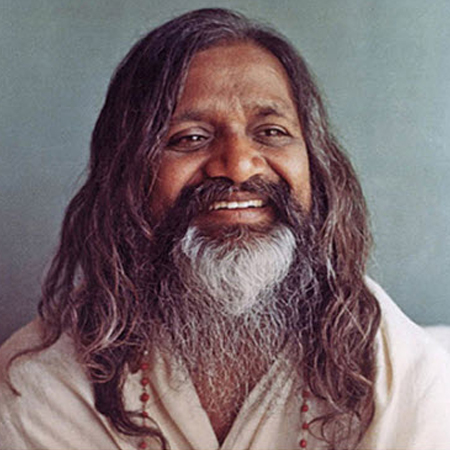 "I was doing a song, 'I Will,' that I had as a melody for quite a long time but I didn't have lyrics to it. I remember sitting around with Donovan, and maybe a couple of other people. We were just sitting around one evening after our day of meditation and I played him this one and he liked it and we were trying to write some words. We kicked around a few lyrics, something about the moon, but they weren't very satisfactory and I thought the melody was better than the words so I didn't use them. I kept searching for better words and I wrote my own set in the end; very simple words, straight love-song words really. I think they're quite effective. It's still one of my favorite melodies that I've written. You just occasionally get lucky with a melody and it becomes rather complete and I think this is one of them; quite a complete tune." In his book "The Lyrics," Paul adds: "The folk singer Donovan, who spent some time with us on our trip to visit Maharishi Mahesh Yogi, helped with an early version of the lyric, but it didn't quite pass muster. It was even more basic, all moon/June stuff...It's still one of my favorites of the melodies I've written. The words took a bit longer. That seems strange, I know, because it's a pretty basic set of ideas." "I was doing a song, 'I Will,' that I had as a melody for quite a long time but I didn't have lyrics to it. I remember sitting around with Donovan, and maybe a couple of other people. We were just sitting around one evening after our day of meditation and I played him this one and he liked it and we were trying to write some words. We kicked around a few lyrics, something about the moon, but they weren't very satisfactory and I thought the melody was better than the words so I didn't use them. I kept searching for better words and I wrote my own set in the end; very simple words, straight love-song words really. I think they're quite effective. It's still one of my favorite melodies that I've written. You just occasionally get lucky with a melody and it becomes rather complete and I think this is one of them; quite a complete tune." In his book "The Lyrics," Paul adds: "The folk singer Donovan, who spent some time with us on our trip to visit Maharishi Mahesh Yogi, helped with an early version of the lyric, but it didn't quite pass muster. It was even more basic, all moon/June stuff...It's still one of my favorites of the melodies I've written. The words took a bit longer. That seems strange, I know, because it's a pretty basic set of ideas."
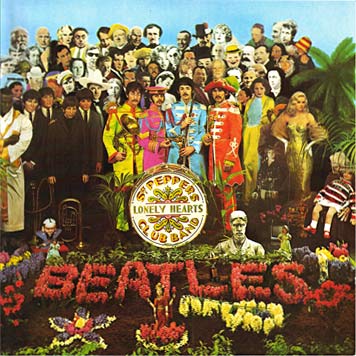 One can only imagine what Paul meant by the melody for "I Will" being around for "quite a long time." However, since a straight-forward 'love ballad' did not appear on either the "Sgt. Pepper" or "Magical Mystery Tour" projects of 1967, it may not be too much of a stretch to say that the melody to "I Will" could have been written as early as 1966. One can only imagine what Paul meant by the melody for "I Will" being around for "quite a long time." However, since a straight-forward 'love ballad' did not appear on either the "Sgt. Pepper" or "Magical Mystery Tour" projects of 1967, it may not be too much of a stretch to say that the melody to "I Will" could have been written as early as 1966.
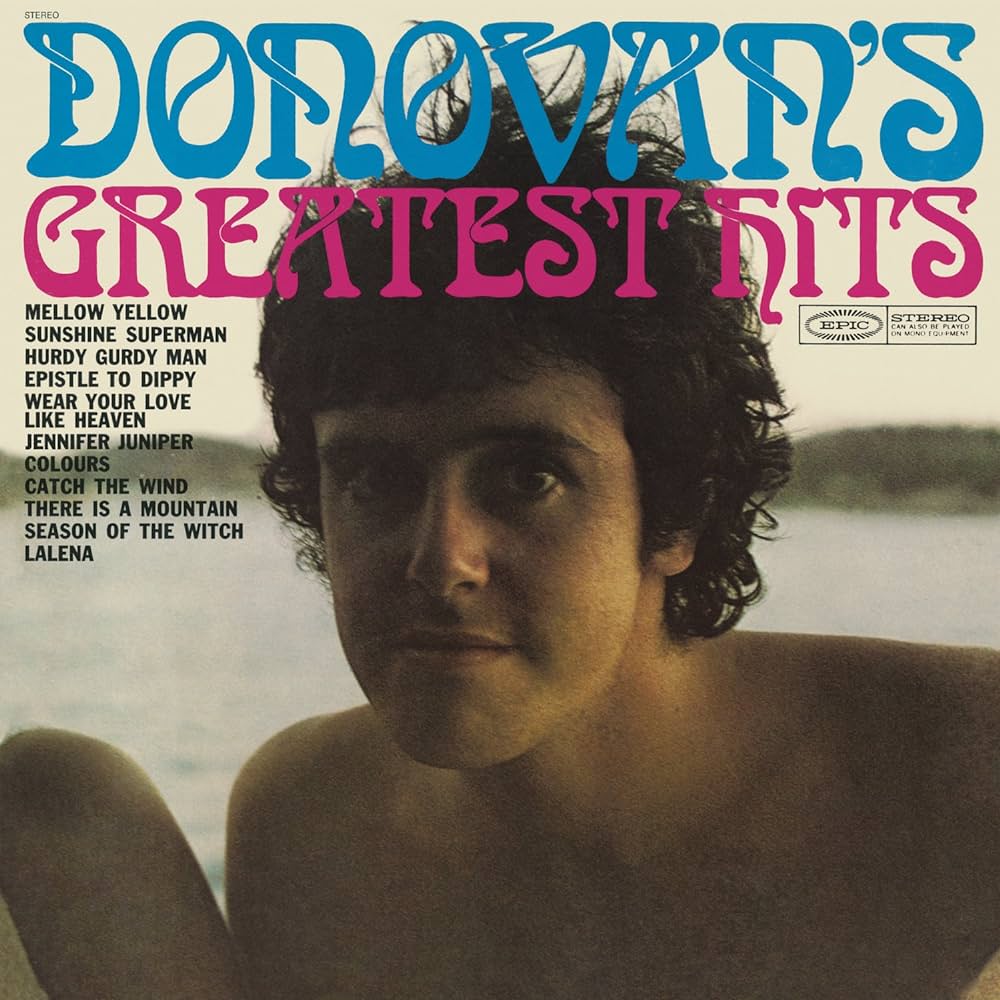 Donovan concurs that his lyrical contribution to the song was dropped, but infers some input otherwise: “I don't think I helped with the lyrics. He is very productive and will always take over the writing in a jam. From listening to the lyrics now, I can hear that Paul no doubt threw together the words for this tune when he got to the studio after India. I may have helped with the shape of the chords and encouraged the imagery from tunes I wrote then in India. The descending movements of my songs may have encouraged Paul to write differently.” Donovan concurs that his lyrical contribution to the song was dropped, but infers some input otherwise: “I don't think I helped with the lyrics. He is very productive and will always take over the writing in a jam. From listening to the lyrics now, I can hear that Paul no doubt threw together the words for this tune when he got to the studio after India. I may have helped with the shape of the chords and encouraged the imagery from tunes I wrote then in India. The descending movements of my songs may have encouraged Paul to write differently.”
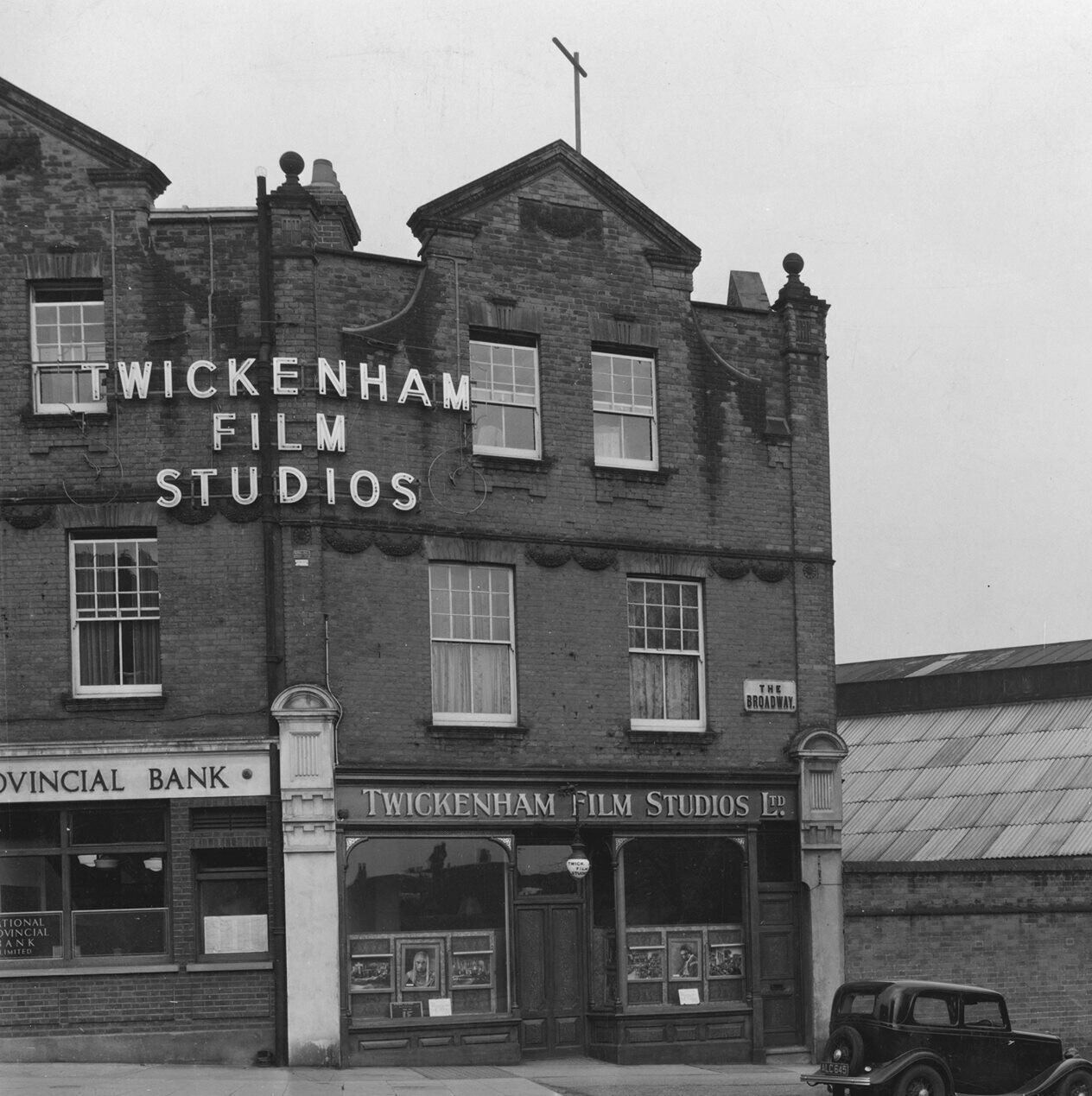 On January 13th, 1969, when Paul was being interviewed at Twickenham Studios during the recording of the “Let It Be” film, the subject was broached about his and John's recent strained collaboration partnership as a result of Yoko's presence in his life. “It's like, we did “I Will,'” Paul relates, “We're trying to get the last verse to 'I Will' and eventually I just ended up doing it, 'cause we couldn't actually do it.” From this comment we can deduce that Paul requested John's input in writing the lyrics for the final verse of “I Will” but, because of him not being cooperative, Paul just finished the lyrics himself. On January 13th, 1969, when Paul was being interviewed at Twickenham Studios during the recording of the “Let It Be” film, the subject was broached about his and John's recent strained collaboration partnership as a result of Yoko's presence in his life. “It's like, we did “I Will,'” Paul relates, “We're trying to get the last verse to 'I Will' and eventually I just ended up doing it, 'cause we couldn't actually do it.” From this comment we can deduce that Paul requested John's input in writing the lyrics for the final verse of “I Will” but, because of him not being cooperative, Paul just finished the lyrics himself.
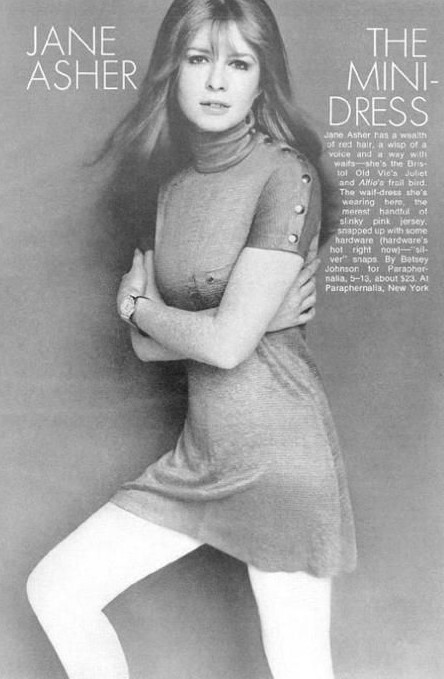 As for the love interest Paul was thinking about when writing the lyrics, he states in his book "The Lyrics": "When I set down to try and write a song, I'm often thinking, 'Oh, I wish I could capture that feeling of first being in love.' This song (lyrically) was started in February 1968, when I was in India with Jane Asher...Yet again, just because I was involved with Jane at the time doesn't mean this song is addressed to, or about, Jane. When I'm writing, it's as if I'm setting words and music to the film I'm watching in my head. It's a declaration of love, yes, but not always to someone specific. Unless it's to a person out there who's listening to the song. And they have to be ready for it. It's almost definitely not going to be a person who's said, 'There he goes again, writing another of those silly love songs.' So, this is me in my troubadour mode." As for the love interest Paul was thinking about when writing the lyrics, he states in his book "The Lyrics": "When I set down to try and write a song, I'm often thinking, 'Oh, I wish I could capture that feeling of first being in love.' This song (lyrically) was started in February 1968, when I was in India with Jane Asher...Yet again, just because I was involved with Jane at the time doesn't mean this song is addressed to, or about, Jane. When I'm writing, it's as if I'm setting words and music to the film I'm watching in my head. It's a declaration of love, yes, but not always to someone specific. Unless it's to a person out there who's listening to the song. And they have to be ready for it. It's almost definitely not going to be a person who's said, 'There he goes again, writing another of those silly love songs.' So, this is me in my troubadour mode."
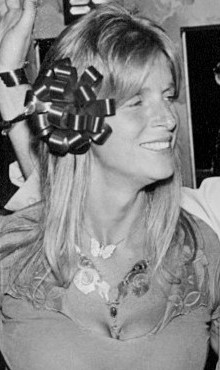 Upon listening to "take one" of the song as recorded in EMI Studios on September 16th, 1968 (as included on the compilation album “Anthology 3”) we can hear that Paul was still playing around with some of the words and, quite possibly, shifting his lyrical intent toward a new love interest. With his recent love interest and soon-to-be-wife Linda Eastman due to arrive in London to stay with Paul the following week, some assume that these lyrics were formulated in the studio on this day as an expression of his anticipated feelings for her. When listening to the lyrics with this in mind, it actually seems likely. Upon listening to "take one" of the song as recorded in EMI Studios on September 16th, 1968 (as included on the compilation album “Anthology 3”) we can hear that Paul was still playing around with some of the words and, quite possibly, shifting his lyrical intent toward a new love interest. With his recent love interest and soon-to-be-wife Linda Eastman due to arrive in London to stay with Paul the following week, some assume that these lyrics were formulated in the studio on this day as an expression of his anticipated feelings for her. When listening to the lyrics with this in mind, it actually seems likely.
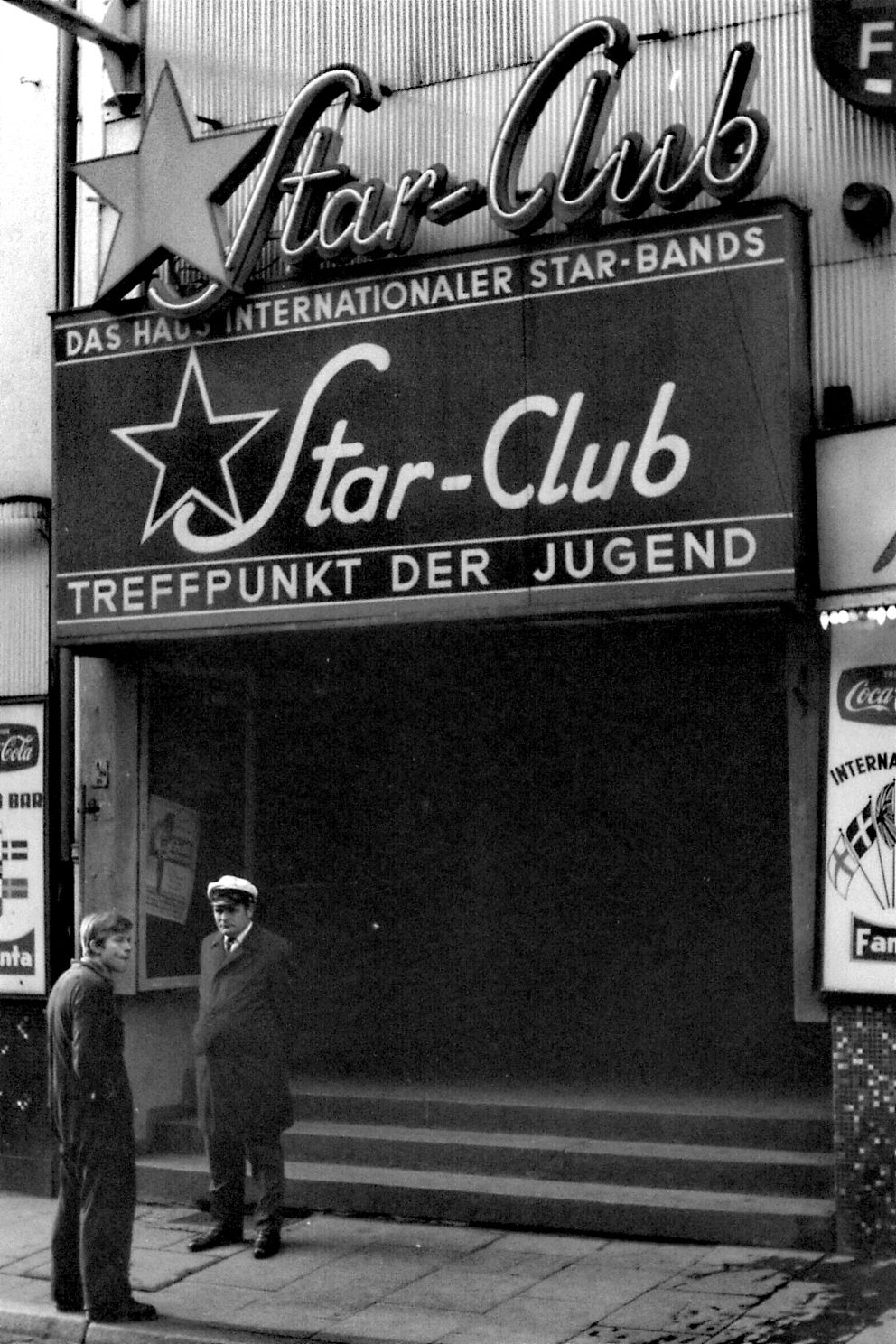 In late 1968, right around the time of release of the “White Album,” Paul shed a little light on the reason songs like “I Will” were written. "We're not just completely rock'n'roll. We're not just completely one kind of group. 'Cause like, when we played in Hamburg, we didn't just do rock all evening 'cause we had to have these sort of fat old businessmen coming in and saying, or thin old businessmen as well, were coming in and saying 'Play a mambo! Can you do a rhumba?' And we couldn't just keep saying 'No,' you know, so we had to get into mambos and rhumbas a bit. So this kind of thing is like a pretty sort of smoochy ballad – 'I Will.'" In late 1968, right around the time of release of the “White Album,” Paul shed a little light on the reason songs like “I Will” were written. "We're not just completely rock'n'roll. We're not just completely one kind of group. 'Cause like, when we played in Hamburg, we didn't just do rock all evening 'cause we had to have these sort of fat old businessmen coming in and saying, or thin old businessmen as well, were coming in and saying 'Play a mambo! Can you do a rhumba?' And we couldn't just keep saying 'No,' you know, so we had to get into mambos and rhumbas a bit. So this kind of thing is like a pretty sort of smoochy ballad – 'I Will.'"
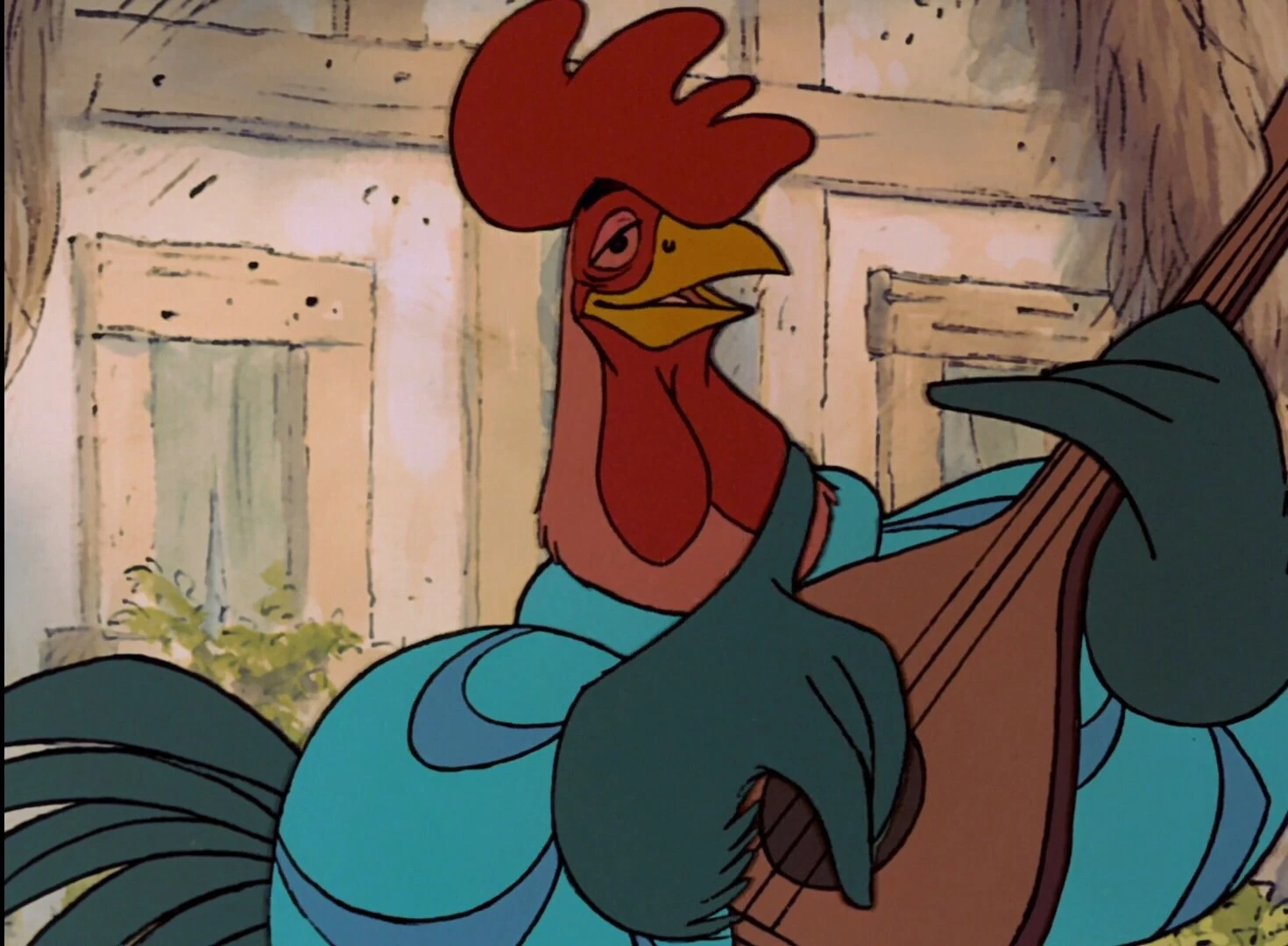 When asked about the song during the writing of his book "The Lyrics," Paul stated: "Alan-A-Dale. The minstrel wandering around Sherwood Forest in the Robin Hood legend. That's me. This song finds me in my troubadour mode. There's a theory that the most interesting love songs are ones about love gone wrong. I don't subscribe to it. This is a song about the joy of love. Those are sometimes thought of as being soppy or sweet or saccharine. Yes, I understand that. But love can be the mightiest, strongest force on the planet. Right now in Vietnam, or in Brazil, there are people falling in love. They often want to have children. It's a strong, universal force. It's not soppy at all."” When asked about the song during the writing of his book "The Lyrics," Paul stated: "Alan-A-Dale. The minstrel wandering around Sherwood Forest in the Robin Hood legend. That's me. This song finds me in my troubadour mode. There's a theory that the most interesting love songs are ones about love gone wrong. I don't subscribe to it. This is a song about the joy of love. Those are sometimes thought of as being soppy or sweet or saccharine. Yes, I understand that. But love can be the mightiest, strongest force on the planet. Right now in Vietnam, or in Brazil, there are people falling in love. They often want to have children. It's a strong, universal force. It's not soppy at all."”
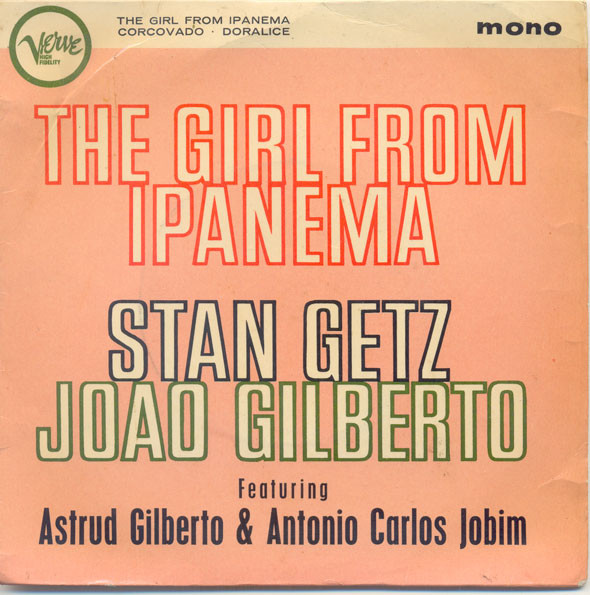 Paul continues: “I don't know if it's getting off the subject, but that's why there's great variety in this LP – 'Cause in everything we do, you know, we just haven't got one bag, you know. And 'cause on one hand you'll get something like 'I Will' and then you'll get 'Why Don't We Do It In The Road?,' you know. Just completely different things – completely different feelings...But it's me singing both of them. It's the same fella. Uhh, and I wrote both of them, you know. So you can't explain it. I don't know why I do 'Why Don't We Do It In The Road?' shouting it like that, and then do this sort of smoochy Latin American 'Girl From Ipanema.'" This bossa nova song was very popular in the mid '60s, due to the recording made by Stan Getz and Joao Gilberto that became a #5 hit on the Billboard Hot 100 in 1964 and that went on to win the 1964 Grammy award for "Record Of The Year." From the above quotes we see that Paul was trying to mimic that "Latin American / mambo / rhumba" feel when writing and recording "I Will." Paul continues: “I don't know if it's getting off the subject, but that's why there's great variety in this LP – 'Cause in everything we do, you know, we just haven't got one bag, you know. And 'cause on one hand you'll get something like 'I Will' and then you'll get 'Why Don't We Do It In The Road?,' you know. Just completely different things – completely different feelings...But it's me singing both of them. It's the same fella. Uhh, and I wrote both of them, you know. So you can't explain it. I don't know why I do 'Why Don't We Do It In The Road?' shouting it like that, and then do this sort of smoochy Latin American 'Girl From Ipanema.'" This bossa nova song was very popular in the mid '60s, due to the recording made by Stan Getz and Joao Gilberto that became a #5 hit on the Billboard Hot 100 in 1964 and that went on to win the 1964 Grammy award for "Record Of The Year." From the above quotes we see that Paul was trying to mimic that "Latin American / mambo / rhumba" feel when writing and recording "I Will."
Recording History
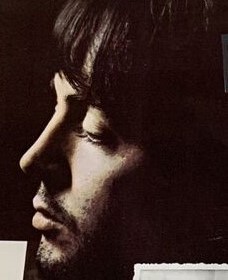 On September 16th, 1968, with just over three-and-a-half months already spent on recording the "White Album," Paul brought "I Will" into EMI Studio Two for the first time. Paul, John and Ringo arrived sometime after the usual designated time of 7 pm to begin the recording process, George not taking part in the recording and possibly not present at all on this day. On September 16th, 1968, with just over three-and-a-half months already spent on recording the "White Album," Paul brought "I Will" into EMI Studio Two for the first time. Paul, John and Ringo arrived sometime after the usual designated time of 7 pm to begin the recording process, George not taking part in the recording and possibly not present at all on this day.
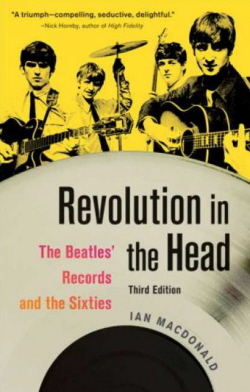 The lyrics may not have been finalized, but Paul nonetheless proceeded to run through a grand total of 67 takes of a live performance of the song. Ian MacDonald's book “Revolution In The Head” makes a keen observation regarding this day's session: “Needing precisely the right performance from an acoustic set-up which exposed the slightest error, it required a grueling 67 takes. The apparent casualness of the result is a tribute to The Beatles' concentration.” Surprisingly, these takes were recorded on a four-track tape machine although an eight-track machine had already been in use in this studio for the past two weeks. The lyrics may not have been finalized, but Paul nonetheless proceeded to run through a grand total of 67 takes of a live performance of the song. Ian MacDonald's book “Revolution In The Head” makes a keen observation regarding this day's session: “Needing precisely the right performance from an acoustic set-up which exposed the slightest error, it required a grueling 67 takes. The apparent casualness of the result is a tribute to The Beatles' concentration.” Surprisingly, these takes were recorded on a four-track tape machine although an eight-track machine had already been in use in this studio for the past two weeks.
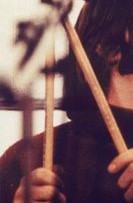 This “acoustic set-up” consisted of Paul on vocals (track four) and acoustic guitar (track three) and both Ringo and John on percussive instruments together on track one. Upon listening, it appears that Ringo was trying to simulate rumba percussion by tapping out a beat using rim shots on his snare drum while occasional kick drum, tom toms and cymbals are also heard. As for John, he is alternating between playing maracas and an instrument found in the Studio Two "trap room" that is best described by Mark Lewisohn in his book “The Beatles Recording Sessions” as “tapping out a beat with wood on metal." In the book that accompanies the Super Deluxe 50th Anniversary box set of the "White Album," Kevin Howlett refers to this instrument as "skulls." This “acoustic set-up” consisted of Paul on vocals (track four) and acoustic guitar (track three) and both Ringo and John on percussive instruments together on track one. Upon listening, it appears that Ringo was trying to simulate rumba percussion by tapping out a beat using rim shots on his snare drum while occasional kick drum, tom toms and cymbals are also heard. As for John, he is alternating between playing maracas and an instrument found in the Studio Two "trap room" that is best described by Mark Lewisohn in his book “The Beatles Recording Sessions” as “tapping out a beat with wood on metal." In the book that accompanies the Super Deluxe 50th Anniversary box set of the "White Album," Kevin Howlett refers to this instrument as "skulls."
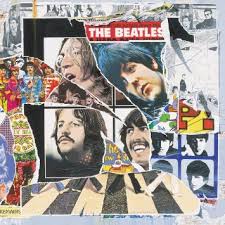 “Take one,” which is heard on “Anthology 3,” sounds as though John played maracas at the beginning of the song but then put them down to play his “wood on metal” skulls from the second verse on. Ringo even quietly crashed a cymbal at the end of the extended final verse. Lyrical differences include Paul singing “love you with all my heart” instead of “love you when we're apart” at the end of the bridge, and “endear me to you” instead of “endear you to me” in the last verse. “Take one,” which is heard on “Anthology 3,” sounds as though John played maracas at the beginning of the song but then put them down to play his “wood on metal” skulls from the second verse on. Ringo even quietly crashed a cymbal at the end of the extended final verse. Lyrical differences include Paul singing “love you with all my heart” instead of “love you when we're apart” at the end of the bridge, and “endear me to you” instead of “endear you to me” in the last verse.
Many of the takes were false starts, "take 12" being one of these, which ended in laughter from all involved just after the first bridge began, this being included on the 50th Annivesary box set of the "White Album." Paul immediately led them into "take 13," which was a complete version with John playing skulls throughout the song. "Rattle them skulls," Lennon proclaims at the end of the take.
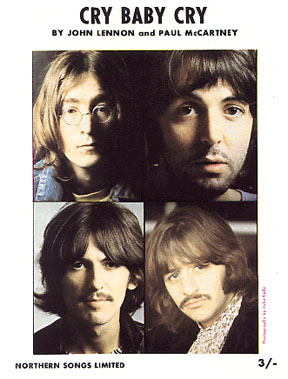 “Revolution In The Head” also states: “Few could have managed this feat without light relief and the session was regularly interrupted by ad-libs.” These ad-libs included what appeared as "take 19," an off-the-cuff creation by Paul, uncopyrighted and documented as "Jam - Unidentified" on the tape box, which lasted two minutes and 21 seconds that included the repeated lyrics “Can you take me back where I came from?” Paul was enamored with this performance enough to have it preserved for one of their two "odds and ends" tapes they were having compiled for posterity. He liked this recording so much, in fact, that the final segment of this "song," twenty-eight seconds in length, was inserted at the end of the song “Cry Baby Cry” on the finished “White Album,” this acting as a link piece to John's “Revolution 9.” (See "Cry Baby Cry" for more information on this performance.) John, incidentally, is playing maracas on this recording. “Revolution In The Head” also states: “Few could have managed this feat without light relief and the session was regularly interrupted by ad-libs.” These ad-libs included what appeared as "take 19," an off-the-cuff creation by Paul, uncopyrighted and documented as "Jam - Unidentified" on the tape box, which lasted two minutes and 21 seconds that included the repeated lyrics “Can you take me back where I came from?” Paul was enamored with this performance enough to have it preserved for one of their two "odds and ends" tapes they were having compiled for posterity. He liked this recording so much, in fact, that the final segment of this "song," twenty-eight seconds in length, was inserted at the end of the song “Cry Baby Cry” on the finished “White Album,” this acting as a link piece to John's “Revolution 9.” (See "Cry Baby Cry" for more information on this performance.) John, incidentally, is playing maracas on this recording.
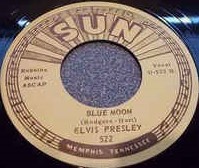 Before "take 28" began, Paul led his bandmates through an impromptu version of the '30s Richared Rodgers and Lorenz Hart classic "Blue Moon," influenced indirectly by the Elvis Presley version from his 1954 Sun Records session that became a British Top 10 single. The Beatles version broke down with laughter sometime after Paul inadvertently exchanged the lyrics "without a love in my heart / without a dream in my own." When it became obvious that they weren't doing the song any justice, John and Paul begin laughing which results in Paul exclaiming: "Very gooseable!" "Take 29" was a further break down, Paul purposely ending the first verse with the line "I won't," prompting John to answer, "Yes you will!" Before "take 28" began, Paul led his bandmates through an impromptu version of the '30s Richared Rodgers and Lorenz Hart classic "Blue Moon," influenced indirectly by the Elvis Presley version from his 1954 Sun Records session that became a British Top 10 single. The Beatles version broke down with laughter sometime after Paul inadvertently exchanged the lyrics "without a love in my heart / without a dream in my own." When it became obvious that they weren't doing the song any justice, John and Paul begin laughing which results in Paul exclaiming: "Very gooseable!" "Take 29" was a further break down, Paul purposely ending the first verse with the line "I won't," prompting John to answer, "Yes you will!"
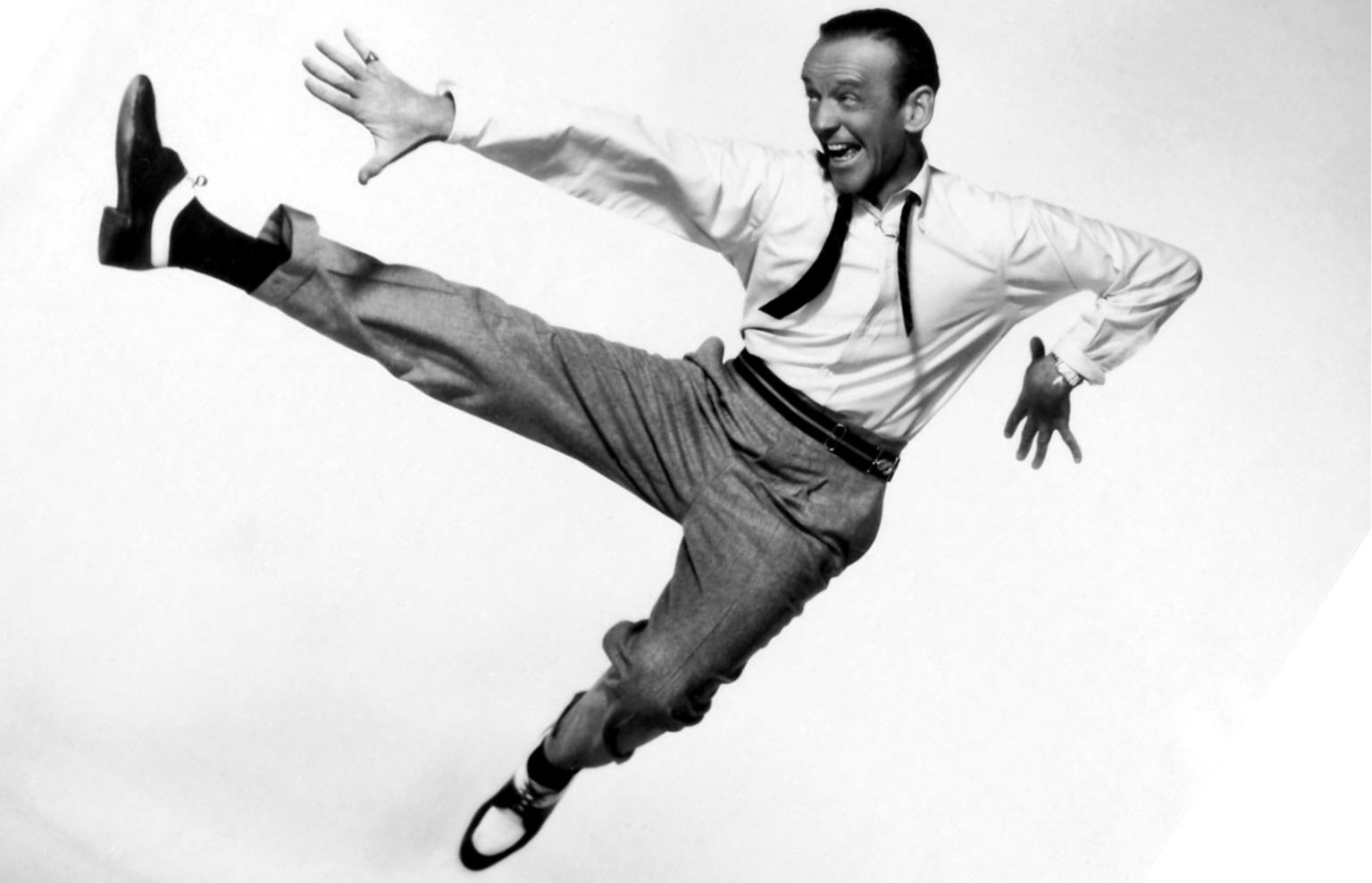 Another “light relief” ad-lib occurred at "take 32," this being an adaptation of the lyrics of “I Will” along with the melody line of the classic Fred Astaire song “The Way You Look Tonight,” this take lasting just over a minute with John simultaneously playing maracas and skulls. This Dorothy Fields and Jerome Kern penned song originally appeared in the Fred Astaire and Ginger Rogers film "Swing Time," the version ad-libbed by The Beatles on this day not being officially released. Another “light relief” ad-lib occurred at "take 32," this being an adaptation of the lyrics of “I Will” along with the melody line of the classic Fred Astaire song “The Way You Look Tonight,” this take lasting just over a minute with John simultaneously playing maracas and skulls. This Dorothy Fields and Jerome Kern penned song originally appeared in the Fred Astaire and Ginger Rogers film "Swing Time," the version ad-libbed by The Beatles on this day not being officially released.
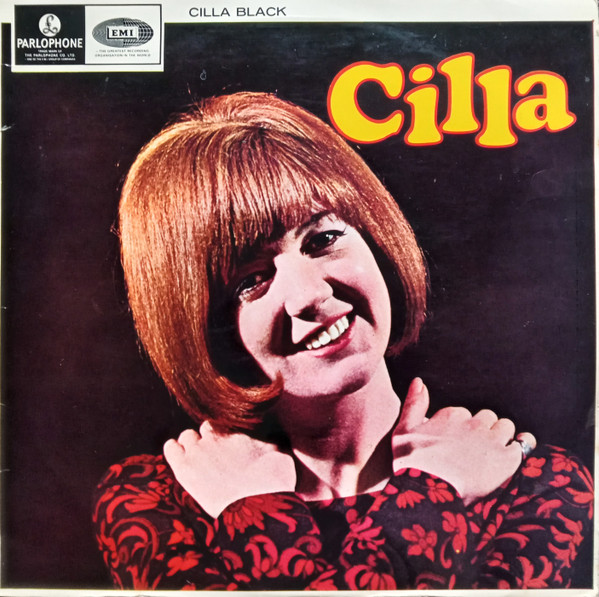 Then, just after "take 35" was complete and they were changing tape reels, Paul led John and Ringo through a short impromptu version of “Step Inside Love,” which was a song Paul wrote especially for Cilla Black to use as the theme song for her first British TV series "Cilla." The new tape caught The Beatles performing the song in progress, the second half of the first chorus and the second verse being preserved, which was included on both "Anthology 3" and the 50th Anniversary "White Album" box set. Cilla Black, who was a good friend of the group from back in the Cavern Club days and who had some success with her recording of a couple of Lennon / McCartney songs, herself charted with "Step Inside Love" at #9 in the UK chart on April 10th, 1968. Then, just after "take 35" was complete and they were changing tape reels, Paul led John and Ringo through a short impromptu version of “Step Inside Love,” which was a song Paul wrote especially for Cilla Black to use as the theme song for her first British TV series "Cilla." The new tape caught The Beatles performing the song in progress, the second half of the first chorus and the second verse being preserved, which was included on both "Anthology 3" and the 50th Anniversary "White Album" box set. Cilla Black, who was a good friend of the group from back in the Cavern Club days and who had some success with her recording of a couple of Lennon / McCartney songs, herself charted with "Step Inside Love" at #9 in the UK chart on April 10th, 1968.
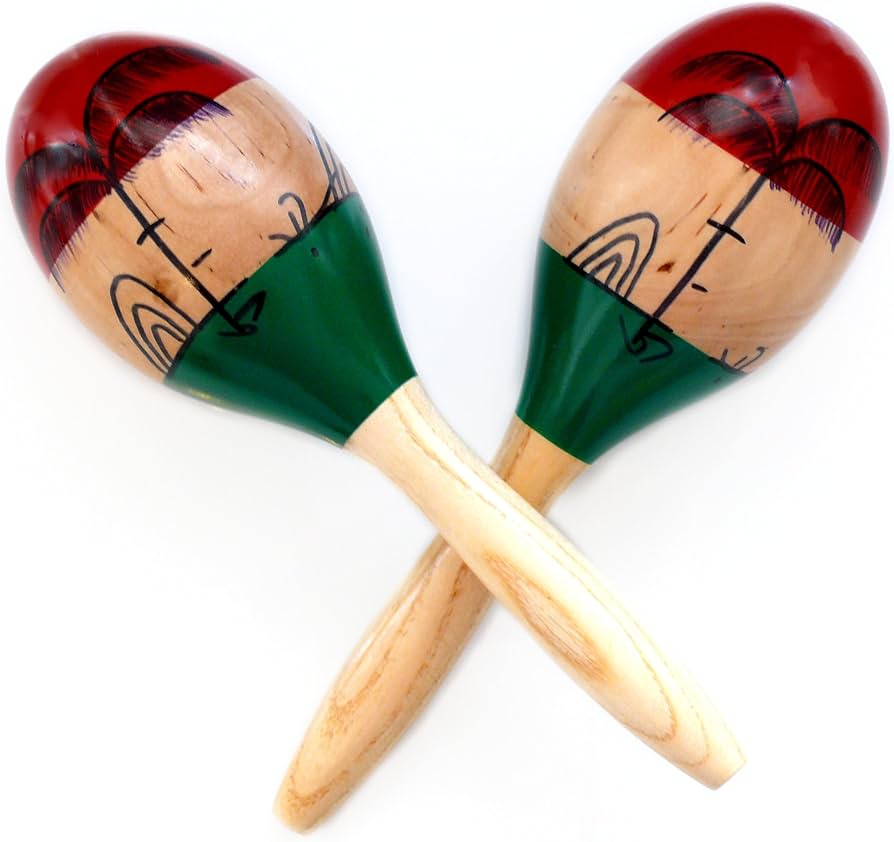 As this ad-lib Beatles rendition wound down, Paul acted as radio disc jockey by announcing that song as performed by “Joe Pararis & The Parari Wallflowers,” which prompted John to announce the next song as being performed by “Los Paranoias,” a group name they had jokingly considered using in 1960 just before settling on the name "Beatles." Paul then laughed and instructed, "Come on now, chaps. Swing, a la Latina!" before breaking into yet another spontaneous ad-lib, including lyrics such as “Los Paranoias, come on, enjoy us...” John repeatedly exclaims “I can't make it” while playing maracas and skulls simultaneously until abandoning the maracas a little later to concentrate on more rapid percussive skull playing. Ringo taps out a drum beat for a short while before ending with a cymbal crash, joining in a little later on maracas and then some more tom tom playing. As this ad-lib Beatles rendition wound down, Paul acted as radio disc jockey by announcing that song as performed by “Joe Pararis & The Parari Wallflowers,” which prompted John to announce the next song as being performed by “Los Paranoias,” a group name they had jokingly considered using in 1960 just before settling on the name "Beatles." Paul then laughed and instructed, "Come on now, chaps. Swing, a la Latina!" before breaking into yet another spontaneous ad-lib, including lyrics such as “Los Paranoias, come on, enjoy us...” John repeatedly exclaims “I can't make it” while playing maracas and skulls simultaneously until abandoning the maracas a little later to concentrate on more rapid percussive skull playing. Ringo taps out a drum beat for a short while before ending with a cymbal crash, joining in a little later on maracas and then some more tom tom playing.
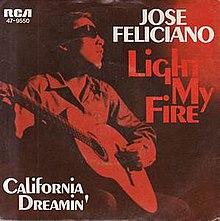 This interesting recording includes Paul singing an elaborate trumpet solo or two, interjecting lines periodically such as "Come and get higher by the fire," which may have been inspired by Jose Feliciano's Latin-styled rendition of "Light My Fire" that had recently climbed the charts. John adds some nonsensical lyrics as well as a "cha-cha-boom" reminiscent of their early '60s rendition of "Besame Mucho," Paul answering this with a quick "Besame" during his first vocal trumpet solo. Paul tries to signal his bandmates to end the song, only to have them continue playing percussion for a short time longer. An abbreviated version of this performance was included on "Anthology 3," while the complete ad-lib was contained on the 50th Anniversary "White Album" box set. This interesting recording includes Paul singing an elaborate trumpet solo or two, interjecting lines periodically such as "Come and get higher by the fire," which may have been inspired by Jose Feliciano's Latin-styled rendition of "Light My Fire" that had recently climbed the charts. John adds some nonsensical lyrics as well as a "cha-cha-boom" reminiscent of their early '60s rendition of "Besame Mucho," Paul answering this with a quick "Besame" during his first vocal trumpet solo. Paul tries to signal his bandmates to end the song, only to have them continue playing percussion for a short time longer. An abbreviated version of this performance was included on "Anthology 3," while the complete ad-lib was contained on the 50th Anniversary "White Album" box set.
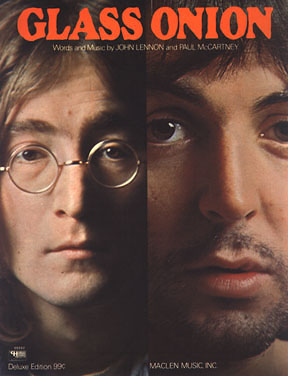 After "take 65," John exclaimed, "That was it, wasn't it?" They did put in two more attempts, but it was decided that John was right after all, everyone settling on "take 65" as best. This performance showed John playing his skulls, the maracas to be added later as an overdub. A tape copy was then made of this take in order to transfer the recording over to an eight-track machine, this now being called "take 68," a decision made to add overdubs on another day. With the time now being approximately 2 am the following morning, a quick couple of overdubs were added to John's song “Glass Onion” and, by 3 am, the session was finally complete. After "take 65," John exclaimed, "That was it, wasn't it?" They did put in two more attempts, but it was decided that John was right after all, everyone settling on "take 65" as best. This performance showed John playing his skulls, the maracas to be added later as an overdub. A tape copy was then made of this take in order to transfer the recording over to an eight-track machine, this now being called "take 68," a decision made to add overdubs on another day. With the time now being approximately 2 am the following morning, a quick couple of overdubs were added to John's song “Glass Onion” and, by 3 am, the session was finally complete.
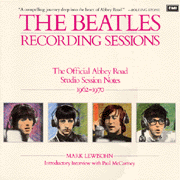 The next day, September 17th, 1968, brought the group back into EMI Studio Two sometime after the documented 7 pm to finalize “I Will.” After a mono mix of “Helter Skelter” was performed, Paul added various overdubs onto “I Will,” these being a harmony vocal during the bridge and conclusion of the song, a second acoustic guitar which added some impressive riffs to the arrangement and, as the book “The Beatles Recording Sessions” called it, “a clever baritone 'dum-dum-dum' impersonation of a bass guitar” by Paul on track five. Maracas were also added simultaneously to track five, this apparently being performed by Ringo. After a tape copy of John's “Cry Baby Cry” was made, this session was shown to end at 5 am the following morning. Since not all that much was done on this day, it is safe to assume that the group didn't actually show up in the studio until much later than 7 pm as documented, which was their habit at the time. The next day, September 17th, 1968, brought the group back into EMI Studio Two sometime after the documented 7 pm to finalize “I Will.” After a mono mix of “Helter Skelter” was performed, Paul added various overdubs onto “I Will,” these being a harmony vocal during the bridge and conclusion of the song, a second acoustic guitar which added some impressive riffs to the arrangement and, as the book “The Beatles Recording Sessions” called it, “a clever baritone 'dum-dum-dum' impersonation of a bass guitar” by Paul on track five. Maracas were also added simultaneously to track five, this apparently being performed by Ringo. After a tape copy of John's “Cry Baby Cry” was made, this session was shown to end at 5 am the following morning. Since not all that much was done on this day, it is safe to assume that the group didn't actually show up in the studio until much later than 7 pm as documented, which was their habit at the time.
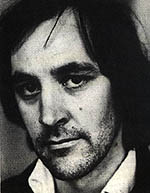 The mono mix was created on September 26th, 1968, in the control room of EMI Studio Two by the engineering team of Chris Thomas, Ken Scott and Mike Sheady. Two attempts were made, undoubtedly the second one being the keeper. ADT (“Artificial Double Tracking”) was applied to Paul's vocals to thicken up the sound on the finished master. Paul's 'bass vocal' begins in the second verse on this mono mix. The mono mix was created on September 26th, 1968, in the control room of EMI Studio Two by the engineering team of Chris Thomas, Ken Scott and Mike Sheady. Two attempts were made, undoubtedly the second one being the keeper. ADT (“Artificial Double Tracking”) was applied to Paul's vocals to thicken up the sound on the finished master. Paul's 'bass vocal' begins in the second verse on this mono mix.
The stereo mix was created on October 14th, 1968, also in the control room of EMI Studio Two, by the engineering team of George Martin, Ken Scott and John Smith, only one attempt being needed. ADT was once again applied to Paul's vocal while his 'bass vocal' is heard right from the beginning of the song this time around.
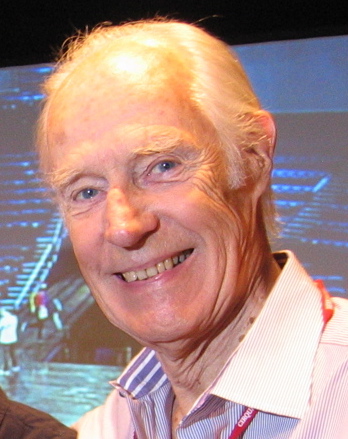 Sometime in 1996, producer George Martin and engineer Geoff Emerick returned to "take one" of the master tape of “I Will” to create a mix for inclusion on the compilation album “Anthology 3.” As mentioned above, they also created a mix of "take 35" including bits of their ad-libs “Step Inside Love” and “Los Paranoias” for inclusion on the same album. Sometime in 1996, producer George Martin and engineer Geoff Emerick returned to "take one" of the master tape of “I Will” to create a mix for inclusion on the compilation album “Anthology 3.” As mentioned above, they also created a mix of "take 35" including bits of their ad-libs “Step Inside Love” and “Los Paranoias” for inclusion on the same album.
 Although not strictly a part of the song “I Will,” the “Can you take me back?” ad-lib recording from "take 19" was included in a mash-up of the track “Come Together / Dear Prudence” as included on the compilation album “Love.” This mix was created by George Martin and his son Giles Martin sometime between 2004 and 2006. Although not strictly a part of the song “I Will,” the “Can you take me back?” ad-lib recording from "take 19" was included in a mash-up of the track “Come Together / Dear Prudence” as included on the compilation album “Love.” This mix was created by George Martin and his son Giles Martin sometime between 2004 and 2006.
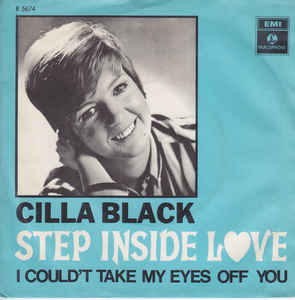 Giles Martin, along with engineer Sam Okell, returned to the master tapes of "I Will" to create a vibrant new stereo mix of the song for inclusion on the various 50th Anniversary editions of the "White Album." While they were at it, they also created mixes of "take 12," "take 13" (both combined as "take 13"), "take 29," "Can You Take Me Back ("take 19")," "Blue Moon," their ad-lib rendition of Cilla Black's "Step Inside Love" and the complete "Los Paranoias," all from the September 16th, 1968 recording session. Giles Martin, along with engineer Sam Okell, returned to the master tapes of "I Will" to create a vibrant new stereo mix of the song for inclusion on the various 50th Anniversary editions of the "White Album." While they were at it, they also created mixes of "take 12," "take 13" (both combined as "take 13"), "take 29," "Can You Take Me Back ("take 19")," "Blue Moon," their ad-lib rendition of Cilla Black's "Step Inside Love" and the complete "Los Paranoias," all from the September 16th, 1968 recording session.
Song Structure and Style
Reverting back to the tried-and-true format of the early Beatle years, Paul structures "I Will" as 'verse/ verse/ bridge/ verse' (or aaba), identical to John's "Please Please Me" of six years prior.
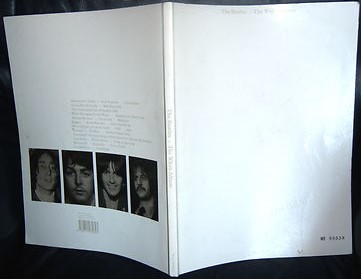 One would almost want to flesh out the song with a solo and a repeat of the bridge and final verse as was the habit of the 1963 Beatles in order to stretch the length out beyond the two minute mark. Undoubtedly, if George Martin were present for the recording, he would have suggested it. But since Chris Thomas was the producer on this day, this wasn't suggested; not that it would have been suggested anyway since the days were gone when the group listened to what their producer had to say. In any event, a simple half reprisal of the bridge was tacked on at the end of the song which acted as a conclusion. One would almost want to flesh out the song with a solo and a repeat of the bridge and final verse as was the habit of the 1963 Beatles in order to stretch the length out beyond the two minute mark. Undoubtedly, if George Martin were present for the recording, he would have suggested it. But since Chris Thomas was the producer on this day, this wasn't suggested; not that it would have been suggested anyway since the days were gone when the group listened to what their producer had to say. In any event, a simple half reprisal of the bridge was tacked on at the end of the song which acted as a conclusion.
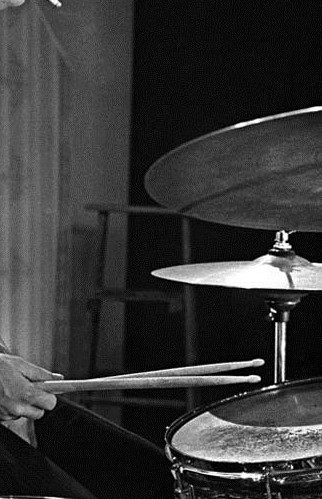 The first verse is nine measures in length and begins with Paul's voice as a lead-in with his lyric “Who knows.” On the down beat, Paul's acoustic guitar and Ringo's drums and cymbal tapping are heard as accompaniment to the lead vocals, along with Paul's vocalized bass (stereo version only). These elements are added to in the seventh and eighth measures by Paul's overdubbed acoustic guitar fills. The second verse is identical to the first regarding elements heard, the only differences being a new set of lyrics and a stripping away of the final measure, a truncated guitar fill passage leading into the bridge that follows. The first verse is nine measures in length and begins with Paul's voice as a lead-in with his lyric “Who knows.” On the down beat, Paul's acoustic guitar and Ringo's drums and cymbal tapping are heard as accompaniment to the lead vocals, along with Paul's vocalized bass (stereo version only). These elements are added to in the seventh and eighth measures by Paul's overdubbed acoustic guitar fills. The second verse is identical to the first regarding elements heard, the only differences being a new set of lyrics and a stripping away of the final measure, a truncated guitar fill passage leading into the bridge that follows.
The bridge is also eight measures long and features some more added elements. John's skull playing appears here for the first time along with Ringo's maracas. Paul's harmony vocals also kick in throughout this bridge as well as his acoustic guitar overdub playing strategically placed guitar lines all the way through.
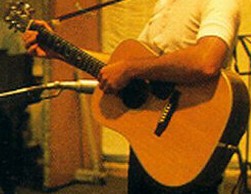 The third verse then appears which is extended to fifteen measures this time around to build the composition to a climactic finish. The intensity of the first five measures is scaled down a bit, however, Paul's acoustic guitar overdub disappearing temporarily. The rhythm track of acoustic guitar, drums, tapping cymbals and vocals are still present, as are John's percussion and Ringo's maracas. Paul's vocals are now double-tracked, however, for the entire verse. The third verse then appears which is extended to fifteen measures this time around to build the composition to a climactic finish. The intensity of the first five measures is scaled down a bit, however, Paul's acoustic guitar overdub disappearing temporarily. The rhythm track of acoustic guitar, drums, tapping cymbals and vocals are still present, as are John's percussion and Ringo's maracas. Paul's vocals are now double-tracked, however, for the entire verse.
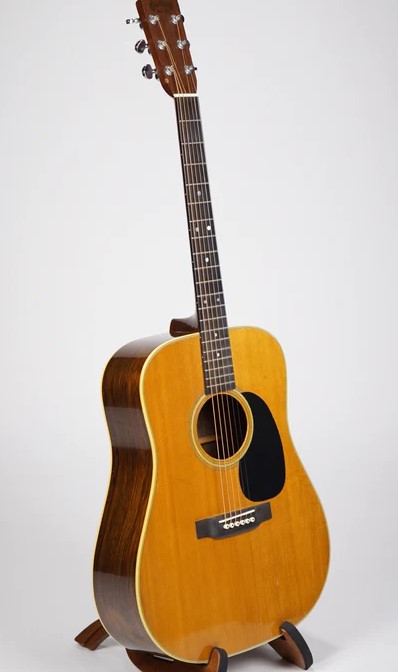 Starting at measure five, Paul repeats the lyrical melody line three times, the first two times followed by three descending notes that are accented by the other elements in the recording, including the reemergence of the acoustic guitar overdub. The third melody line is extended (“endear you to me”) which this time is accentuated by four chordal accents as a backdrop which skillfully wind up like the other verses, ending with the phrase “I will.” However, at this point, a surprising chord is heard which signals all the elements to up their intensity once again, John's percussion galloping like a wild stallion, Ringo's maracas kicking into high gear, and Paul's acoustic guitar overdub plodding away similar to what is heard at the close of the previous verses. This continues for the fourteenth and fifteenth measures as Paul repeats “I will” once again in a higher register as the expected chord is now heard. Ringo ends the verse with his only drum fill of the song. Starting at measure five, Paul repeats the lyrical melody line three times, the first two times followed by three descending notes that are accented by the other elements in the recording, including the reemergence of the acoustic guitar overdub. The third melody line is extended (“endear you to me”) which this time is accentuated by four chordal accents as a backdrop which skillfully wind up like the other verses, ending with the phrase “I will.” However, at this point, a surprising chord is heard which signals all the elements to up their intensity once again, John's percussion galloping like a wild stallion, Ringo's maracas kicking into high gear, and Paul's acoustic guitar overdub plodding away similar to what is heard at the close of the previous verses. This continues for the fourteenth and fifteenth measures as Paul repeats “I will” once again in a higher register as the expected chord is now heard. Ringo ends the verse with his only drum fill of the song.
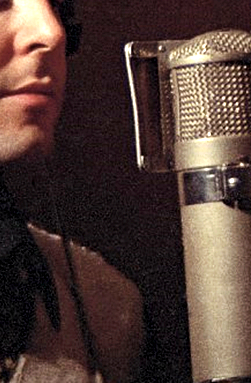 A four measure conclusion is then heard which is strikingly similar to the first four measures of the bridge. All of the elements are still present while Paul hums in harmony with himself the first two measures and sings “da, da, da, da, da, da, da” in an ascending melody line in the final two measures to end the song. John then adds three additional percussive beats after everyone has stopped playing. Lennon always has to make his presence felt, getting in the last word! A four measure conclusion is then heard which is strikingly similar to the first four measures of the bridge. All of the elements are still present while Paul hums in harmony with himself the first two measures and sings “da, da, da, da, da, da, da” in an ascending melody line in the final two measures to end the song. John then adds three additional percussive beats after everyone has stopped playing. Lennon always has to make his presence felt, getting in the last word!
 The lyric appears to be describing the act of visualization (as may have been taught by the Maharishi), Paul imagining his "true love" for as far back as he can remember. He may have met his true love at some time in his life but he “didn't catch” her name. But it “doesn't really matter” anyway because destiny would eventually bring his soul-mate to him. And then, when he “at last” recognizes her, her “song will fill the air” and they will be together “forever and forever.” How romantic! The lyric appears to be describing the act of visualization (as may have been taught by the Maharishi), Paul imagining his "true love" for as far back as he can remember. He may have met his true love at some time in his life but he “didn't catch” her name. But it “doesn't really matter” anyway because destiny would eventually bring his soul-mate to him. And then, when he “at last” recognizes her, her “song will fill the air” and they will be together “forever and forever.” How romantic!
American Releases
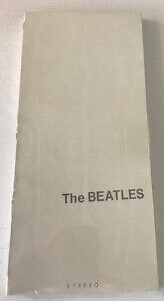 "The Beatles," the official title of what became known as the "White Album," was released in the US on November 25th, 1968. Paul's tender ballad "I Will" was purposely placed on side two of this double album immediately after his raucous "Why Don't We Do It In The Road?" to show his versatility. The album was first released on compact disc on August 24th, 1987 in the standard long box, then as a 30th Anniversary limited edition on November 23rd, 1998, then as a remastered CD on September 9th, 2009. The first American mono vinyl copies weren't printed until September 9th, 2014, while a newly created stereo mix was released on vinyl on November 9th, 2018. "The Beatles," the official title of what became known as the "White Album," was released in the US on November 25th, 1968. Paul's tender ballad "I Will" was purposely placed on side two of this double album immediately after his raucous "Why Don't We Do It In The Road?" to show his versatility. The album was first released on compact disc on August 24th, 1987 in the standard long box, then as a 30th Anniversary limited edition on November 23rd, 1998, then as a remastered CD on September 9th, 2009. The first American mono vinyl copies weren't printed until September 9th, 2014, while a newly created stereo mix was released on vinyl on November 9th, 2018.
.jpg) A short lived format called “Playtapes” were produced in the later '60s, these being small tapes manufactured to be played in specially made portable tape players as well as standard equipment in certain models of Volkswagens at that time. Capitol released tapes in this format to represent each of The Beatles albums currently in print, five different volumes containing songs from the “White Album” being released sometime in 1969. The Playtape entitled “The Beatles Vol. II” featured “I Will” among the five songs included therein. A short lived format called “Playtapes” were produced in the later '60s, these being small tapes manufactured to be played in specially made portable tape players as well as standard equipment in certain models of Volkswagens at that time. Capitol released tapes in this format to represent each of The Beatles albums currently in print, five different volumes containing songs from the “White Album” being released sometime in 1969. The Playtape entitled “The Beatles Vol. II” featured “I Will” among the five songs included therein.
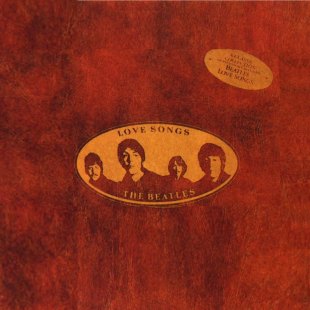 On October 21st, 1977, the double- album compilation “Love Songs” was released by Capitol which contained “I Will” on side four. Concocted as a follow up to the previous year's highly successful compilation package “Rock 'n' Roll Music,” this new album gained only moderate success, peaking at #24 on the US Billboard album chart. On October 21st, 1977, the double- album compilation “Love Songs” was released by Capitol which contained “I Will” on side four. Concocted as a follow up to the previous year's highly successful compilation package “Rock 'n' Roll Music,” this new album gained only moderate success, peaking at #24 on the US Billboard album chart.
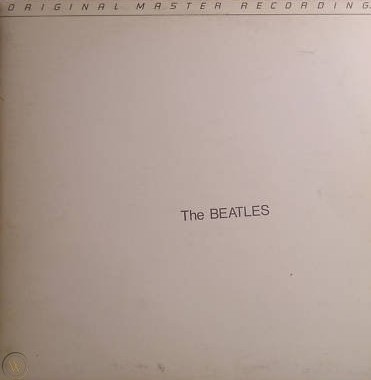 An interesting US vinyl edition of the “White Album” was released on January 7th, 1982, this being manufactured by Mobile Fidelity Sound Lab in Chatsworth, California as part of their "Original Master Recording" series. Their practice was to prepare a new master utilizing half-speed mastering technology from the original master tapes, in this case using the leased sub-master from Capitol Records. This release, which sounded superior to all previous British and American pressings, was packaged in a non-embossed unnumbered cover that did not include the usual poster/lyric sheet or individual Beatles portraits as contained in standard releases. This nonetheless excellent edition of the album was only available for a short time and is quite collectible today. An interesting US vinyl edition of the “White Album” was released on January 7th, 1982, this being manufactured by Mobile Fidelity Sound Lab in Chatsworth, California as part of their "Original Master Recording" series. Their practice was to prepare a new master utilizing half-speed mastering technology from the original master tapes, in this case using the leased sub-master from Capitol Records. This release, which sounded superior to all previous British and American pressings, was packaged in a non-embossed unnumbered cover that did not include the usual poster/lyric sheet or individual Beatles portraits as contained in standard releases. This nonetheless excellent edition of the album was only available for a short time and is quite collectible today.
As mentioned above, the special compilation album “Anthology 3” included the original "take one" from the master tape recorded on September 16th, 1968. This album was released on October 28th, 1996.
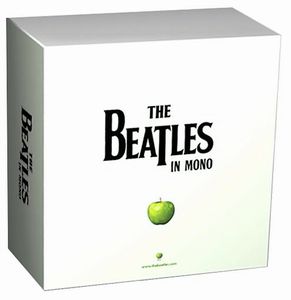 The CD box set “The Beatles In Mono” was released on September 9th, 2009, this package including the entire catalog of mono mixes released worldwide by The Beatles. “I Will” was included along with the rest of the “White Album” in this box set, the vinyl edition being first released on Septmeber 9th, 2014. The CD box set “The Beatles In Mono” was released on September 9th, 2009, this package including the entire catalog of mono mixes released worldwide by The Beatles. “I Will” was included along with the rest of the “White Album” in this box set, the vinyl edition being first released on Septmeber 9th, 2014.
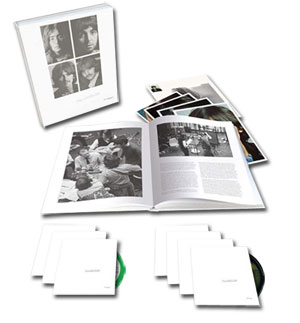 Various editions of the "White Album" were released on November 9th, 2018 to commemorate the 50th Anniversary of its original release. The "Deluxe" edition, which was made available in a 3CD set and a limited edition 180-gram 4LP vinyl set, contained the newly created Giles Martin mix of the "White Album," including "I Will." The "Super Deluxe" 6CD + 1Blu-ray edition also contains "take 13" and "take 29" from the master tapes of the rhythm track recorded on September 16th, 1968, as well as their ad lib recordings of "Blue Moon," "Step Inside Love," "Los Paranoias" and "Can You Take Me Back," all of which were recorded during the sessions of that day. Various editions of the "White Album" were released on November 9th, 2018 to commemorate the 50th Anniversary of its original release. The "Deluxe" edition, which was made available in a 3CD set and a limited edition 180-gram 4LP vinyl set, contained the newly created Giles Martin mix of the "White Album," including "I Will." The "Super Deluxe" 6CD + 1Blu-ray edition also contains "take 13" and "take 29" from the master tapes of the rhythm track recorded on September 16th, 1968, as well as their ad lib recordings of "Blue Moon," "Step Inside Love," "Los Paranoias" and "Can You Take Me Back," all of which were recorded during the sessions of that day.
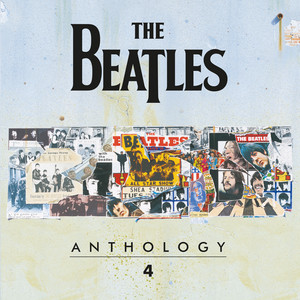 On November 21st, 2025, "Anthology 4" was released on both CD and vinyl, this album also being made available within the "Anthology Collection" box set on CD and on vinyl. "Take 29" of "I Will" as recorded at EMI Studio Two on September 17th, 1968, as detailed above, was included on this release as it was on the above mentioned "Super Deluxe" edition of the "White Album." On November 21st, 2025, "Anthology 4" was released on both CD and vinyl, this album also being made available within the "Anthology Collection" box set on CD and on vinyl. "Take 29" of "I Will" as recorded at EMI Studio Two on September 17th, 1968, as detailed above, was included on this release as it was on the above mentioned "Super Deluxe" edition of the "White Album."
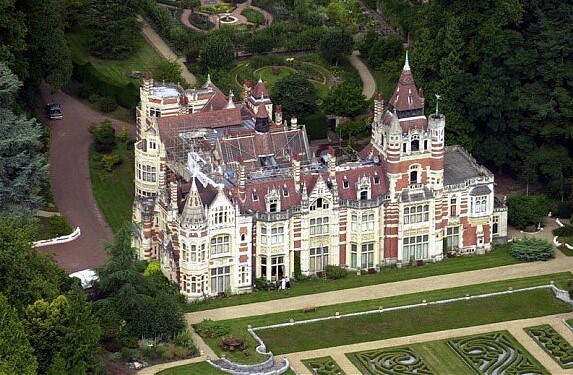
Live Performances
The only Beatles performance of "I Will" occurred on June 23rd, 1994 with Paul and George on Ukuleles and Ringo looking on. Filmed in George's garden at his Friar Park home in Henley on Thames, England, and included in the 2003 Anthology DVD set, this brief run-though of the song was performed during their recollections of songs they had written in India.
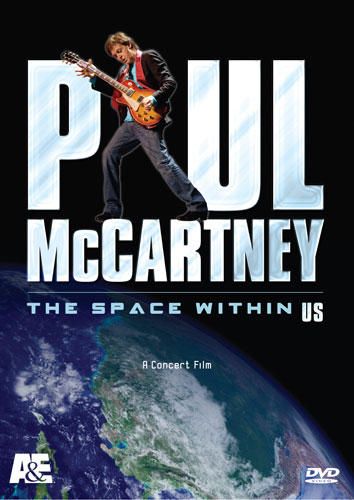 Paul did periodically include the song in his live set lists, such as on his “US Tour” (as featured in the DVD "The Space Within Us"), which ran from September 16th (Miami, Florida) to November 30th (Los Angeles, California), 2005. He then included the song in some of the dates on his “On The Run” tour, which ran from July 15th, 2011 (New York City) to November 29th, 2012 (Edmonton, Canada). Paul did periodically include the song in his live set lists, such as on his “US Tour” (as featured in the DVD "The Space Within Us"), which ran from September 16th (Miami, Florida) to November 30th (Los Angeles, California), 2005. He then included the song in some of the dates on his “On The Run” tour, which ran from July 15th, 2011 (New York City) to November 29th, 2012 (Edmonton, Canada).
Conclusion
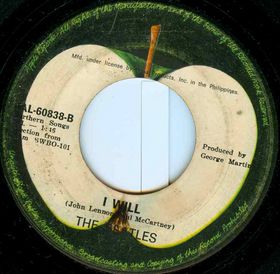 While most of the thirty songs contained on the “White Album” remained as album tracks of little notoriety, the track “I Will,” being rather modest in production as well as length, stood out as an irresistible melody that harkened back to earlier Beatle times. Never released in the UK or the US as a single (although it was the b-side to “Ob-La-Di, Ob-La-Da” in the Philippines), the recording nevertheless stands the test of time and fits nicely among the sizable list of enduring love ballads of The Beatles' career. Its inclusion on The Beatles compilation LP “Love Songs” proves this to be true. So does the fact that it is a frequent request for wedding ceremonies and receptions. While most of the thirty songs contained on the “White Album” remained as album tracks of little notoriety, the track “I Will,” being rather modest in production as well as length, stood out as an irresistible melody that harkened back to earlier Beatle times. Never released in the UK or the US as a single (although it was the b-side to “Ob-La-Di, Ob-La-Da” in the Philippines), the recording nevertheless stands the test of time and fits nicely among the sizable list of enduring love ballads of The Beatles' career. Its inclusion on The Beatles compilation LP “Love Songs” proves this to be true. So does the fact that it is a frequent request for wedding ceremonies and receptions.
As Paul explained above, “It's still one of my favorite melodies that I've written. You just occasionally get lucky with a melody.”
Song Summary
"I Will"
Written by: John Lennon / Paul McCartney
- Song Written: 1966? - September 16, 1968
- Song Recorded: September 16 & 17, 1968
- First US Release Date: November 25, 1968
- First US Album Release: Apple #SWBO-101 “The Beatles”
- US Single Release: n/a
- Highest Chart Position: n/a
- British Album Release: Apple #PCS 7067-7068 “The Beatles”
- Length: 1:46
- Key: F major
- Producer: Chris Thomas
- Engineers: Ken Scott, Mike Sheady
Instrumentation (most likely):
- Paul McCartney - Lead and Backing Vocals, Acoustic Guitar (1967 Martin D-28)
- Ringo Starr - Drums (1964 Ludwig Super Classic Black Oyster Pearl), maracas
- John Lennon - skulls (“Wood on metal”)
Written and compiled by Dave Rybaczewski
|
IF YOU WOULD LIKE TO MAKE A DONATION TO KEEP THIS WEBSITE UP AND RUNNING, PLEASE CLICK BELOW!
Sign Up Below for our MONTHLY BEATLES TRIVIA QUIZ!
|